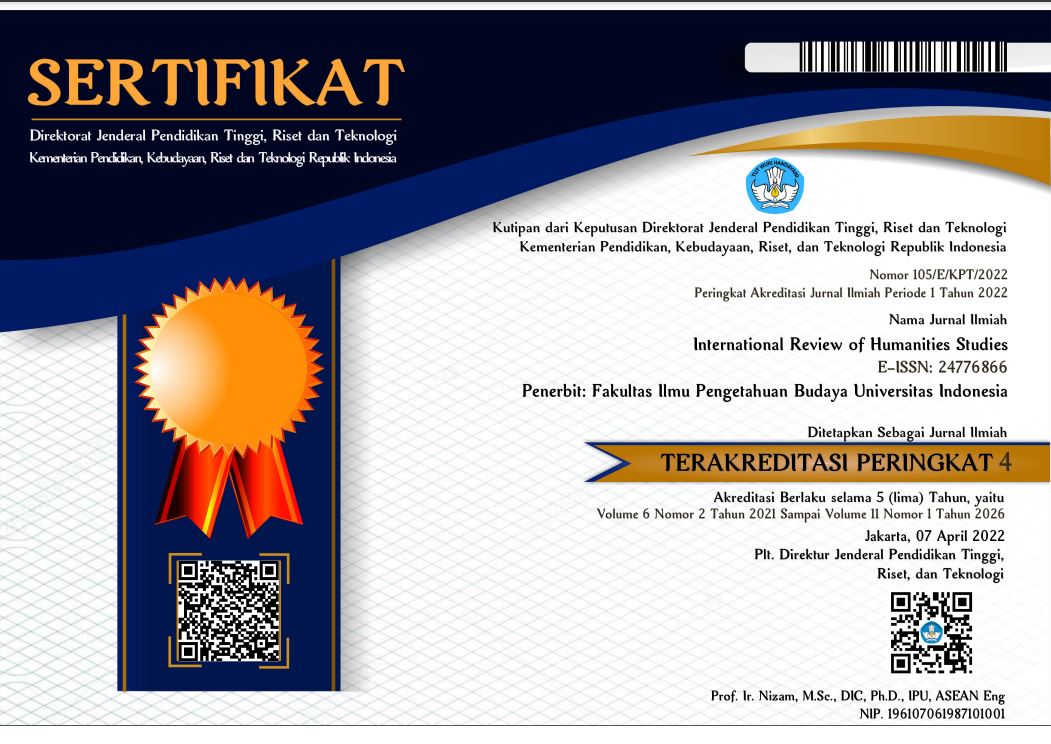International Review of Humanities Studies

Abstract
This article analyzes message switching, idiomatic expressions, characteristics of idioms, idiomatic forms, and Quranic idioms. The data source of this research is 28 idiomatic expressions in the Quran. The method used is content analysis using a lexical, grammatical, and Arabic stylistic approach. Idiomatic expression is a form of combination of words whose meaning is not the same as the meaning of each word that forms the combination. This article will analyze idiomatic patterns in the Quran whether the Quran tends to use verbal phrase idioms, nominal phrase idioms, prepositional idioms, clause idioms, sentence idioms, and idioms in Arabic translated to non-idioms in Indonesian. Equivalents for idioms in Arabic are sought from among the idioms in Indonesian whereas non-idioms in Arabic are translated as idioms in Indonesian. Quranic idioms mentioned in this article are idioms found in the Quran. In Arabic tasybih baligh (the eloquent analogy) is a very sophisticated language style, there is nothing more sophisticate than tasybih baligh. The conclusion of this article is that the translation or transfer of the meaning of sentences in the source language (SL) into the target language (TL) is much easier than transferring the meaning of surface structures which are sometimes complex, have multiple interpretations, and difficult to understand. Translations of the Quranic verses are more likely to use a faithful translation approach, namely a translation that is faithful to the linguistic form of the source language (SL).
Recommended Citation
Imamuddin, Basuni; Muta’ali, Abdul; and Triwinarti, Wiwin
(2020)
"PROBLEMS IN TRANSLATING FROM ARABIC TO INDONESIAN: A STUDY OF THE TRANSLATION OF QURANIC IDIOMS INTO INDONESIAN,"
International Review of Humanities Studies: Vol. 5:
No.
2, Article 21.
Available at:
https://scholarhub.ui.ac.id/irhs/vol5/iss2/21


